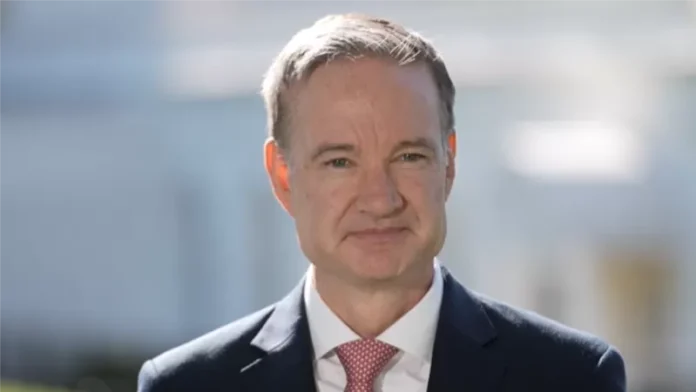THE WHITE HOUSE — Less than a day after U.S. President Joe Biden granted Ukraine authorization to strike inside Russia with American weaponry, Michael Carpenter, senior director for Europe at the National Security Council, spoke with VOA’s Iuliia Iarmolenko to discuss details of the new policy and explain what prompted the president’s reversal of a longstanding ban.
In an exclusive interview with VOA, Carpenter, former U.S. ambassador to the Organization for Security and Cooperation in Europe, emphasized that U.S. policies barring Ukraine from using American-provided ATACMS, or long-range missiles, and other munitions to strike offensively inside Russia have not changed. He also provided insights into the new policy and its potential impact on the ongoing conflict between Ukraine and Russia.
The following interview has been edited for length and clarity.
VOA: Could you provide details about this shift in policy? What is allowed and what are the limitations?
MICHAEL CARPENTER, SENIOR DIRECTOR FOR EUROPE AT NATIONAL SECURITY COUNCIL: This shift in policy comes in the context of the Russian offensive in the Kharkiv region against Ukraine. The Russians were striking targets in Ukraine from just across the border, causing harm to Ukrainian villages and civilians. At that point, the Ukrainians came to us with a request to use U.S.-provided weapons to defend themselves and strike back at the Russian weapons. President Biden directed his national security team to look into this and change the guidance to allow for the employment of U.S. provided weapons. This guidance has now gone into effect.
VOA: Does it apply only to the Kharkiv region?
CARPENTER: This policy applies to counter-fire capabilities that are deployed just across the border. It does not apply to ATACMS or long-range strikes. This is meant to enable Ukrainians to defend themselves against Russian attacks coming from across the border, where the Russians would otherwise enjoy a relative sanctuary on their side.
VOA: What is the hope of the administration on how this policy shift might influence Ukraine’s position on the battlefield?
CARPENTER: We have always wanted to give Ukraine the capabilities it needs to defend itself against this aggressive onslaught on their territory. This policy change is a step towards that goal. We hope it will give Ukraine an upper hand in defending its sovereignty and deterring further Russian aggression.
VOA: Do you expect this change in policy to have a significant impact on the situation on the battlefield in the coming months?
CARPENTER: We are continuously working to provide Ukraine with the necessary capabilities to defend itself. The types of weapons systems and capabilities we have provided have changed over time, as the battlefield has evolved. We will continue to react to what Russia is doing and work with our allies and partners to support Ukraine.
VOA: A couple of weeks ago, Defense Secretary Austin said the United States is talking to allies in Europe about trying to get at least one more Patriot air-defense battery in place. Should we expect another battery directly from the United States as well?
CARPENTER: We are closely examining how we can contribute to Ukraine’s air defense needs, which are very acute at this point in time. We are in discussions with our allies and partners around the world. While I cannot make any announcements today, I can assure you that we are doing everything possible to provide Ukraine with the necessary air defense capabilities.
VOA: I’d like to talk about the upcoming July NATO summit in Washington. Secretary of State Antony Blinken this week said that we’ll see “very strong deliverables for Ukraine” at the summit. Is there a consensus among allies about what those deliverables might look like? And should Ukraine expect an invitation to start accession talks?
CARPENTER: Secretary Blinken is currently in Prague to discuss the nature of the deliverables for Ukraine and the support that will be provided in the aftermath of the Washington summit. We anticipate that the support will be robust and serve as a bridge to NATO membership for Ukraine. While there is no consensus for an invitation at the Washington summit, we are working towards building Ukraine’s capabilities and ensuring it is fully prepared to join the alliance when the time comes.
VOA: President Biden is meeting today with Belgian Prime Minister Alexander De Croo at the White House. What role does President Biden hope Belgium can play in using Russian frozen assets to Ukraine’s benefit?
CARPENTER: Belgium is a strong NATO ally and a member of the EU. They play

